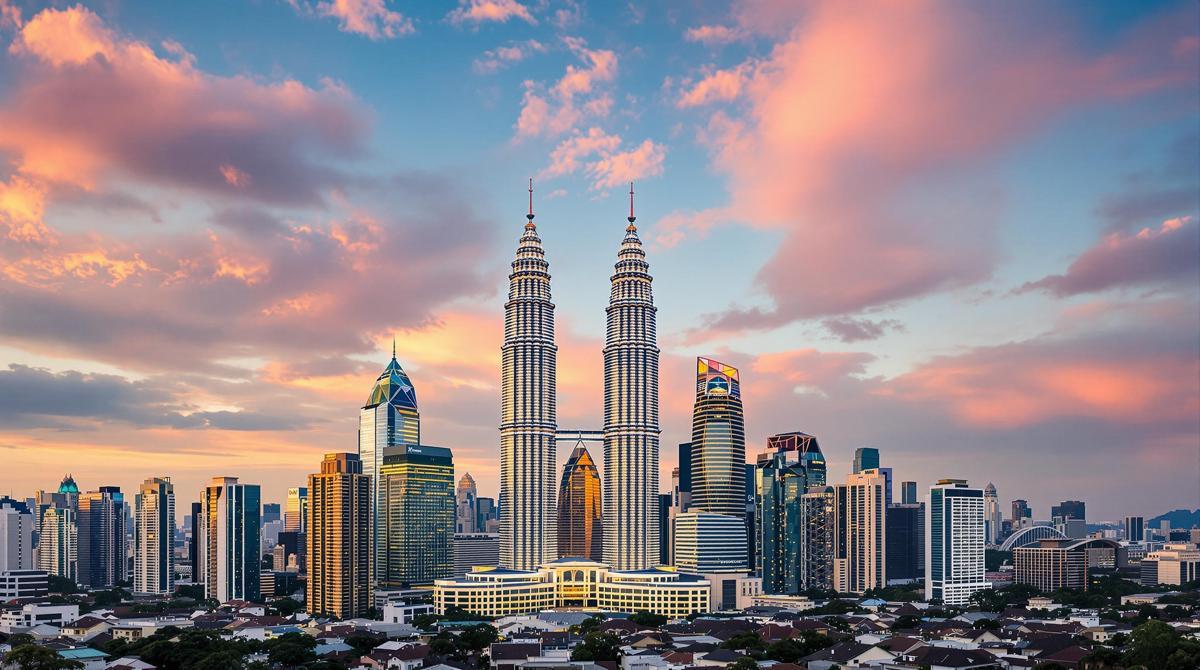Hidden beneath Southeast Asia’s towering skyscrapers lies a digital nomad paradise that combines affordability with urban sophistication. Kuala Lumpur—Malaysia’s beating heart—has quietly transformed into one of the most compelling destinations for location-independent professionals seeking both Eastern cultural immersion and Western conveniences.
A multicultural metropolis offering unmatched value
Unlike its more expensive neighbors Singapore and Bangkok, KL delivers metropolitan luxury at a fraction of the cost. Modern apartments with rooftop pools in central districts start at $700 monthly—roughly half what you’d pay in trendy digital nomad hubs like Bali. This affordability extends across daily living, with meals at local hawker centers costing just $2-3.
Connectivity that rivals global tech capitals
What truly separates KL from other Asian nomad destinations is its technological infrastructure. The city boasts lightning-fast fiber internet (averaging 100 Mbps) and widespread 5G coverage—crucial advantages for remote workers dependent on reliable connections. Co-working spaces like WORQ and Common Ground offer world-class facilities starting at $100 monthly.
“After trying six Asian cities, I settled in KL because it offers the perfect balance. I get Singapore’s efficiency and connectivity without the crushing expenses,” explains Jason Miller, a software developer who relocated from Austin three years ago.
A visa situation that favors digital workers
Malaysia has embraced the digital nomad movement with its recently launched DE Rantau Nomad Pass, offering stays of up to 12 months with simple renewal processes. This places it among the most accessible countries for remote workers seeking longer-term bases.
Cultural fusion beyond compare
Unlike the cultural homogeneity of some nomad destinations, KL offers a thrilling blend of Malay, Chinese, Indian, and colonial influences. This diversity manifests most deliciously in its food scene, where breakfast might mean Indian roti canai, lunch could be Chinese Hokkien mee, and dinner often features Malay satay—all within walking distance of each other.
Beyond the Petronas Towers
While most visitors fixate on the iconic twin towers, nomads who stay longer discover hidden gems like Kampung Baru—a traditional Malay village improbably surrounded by skyscrapers. For weekend escapes, the colonial charm of Melaka or authentic floating markets just hours away provide perfect cultural immersion opportunities.
Desert and fortress adventures within reach
KL’s central location makes it ideal for exploring Southeast Asia. Budget flights can whisk you to Morocco’s golden desert dunes or ancient Portuguese fortress villages for extended working vacations.
“Living in KL gave me the financial freedom to travel extensively throughout Asia while maintaining a comfortable home base,” says travel writer Emma Chen. “The airport connects to everywhere, and weekend trips to Thailand or Indonesia cost less than dinner back home.”
The community factor
Perhaps KL’s greatest asset is its welcoming expatriate community. Regular meetups, language exchanges, and networking events make integration surprisingly easy compared to more closed societies elsewhere in Asia. This accessibility, combined with widespread English proficiency, minimizes the culture shock that often derails nomadic adventures.
For digital professionals seeking a cosmopolitan experience without Western prices, Kuala Lumpur offers that rare combination of economic value, cultural richness, and modern convenience that defines the ideal nomad destination. While Bali and Chiang Mai may grab more headlines, KL quietly delivers precisely what today’s discerning location-independent workers truly need.
